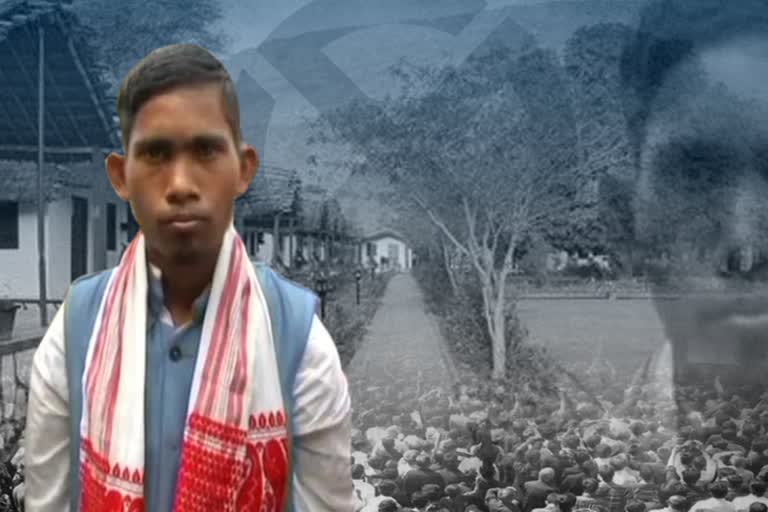అసోం రాష్ట్రంలోని మొదాటి గ్రామస్థుడు సుకుర్ అలీ. వయసు 26 ఏళ్లు. గ్రామ సమస్యలు తీర్చేందుకు డుబిడీ లోక్సభ స్థానం నుంచి పోటీ చేయాలని నిర్ణయించుకున్నారు. కానీ అందుకు అవసరమైన డబ్బు ఆయన దగ్గర లేదు. అందుకే విరాళాలు సేకరిస్తున్నారు.
"ఎన్నికల్లో పాల్గొనేందుకు డబ్బు సేకరించలేకపోతే కిడ్నీ అమ్ముకుంటా. ఈ ప్రాంతంలో అభివృద్ధి అనేదే లేదు. అందుకే నేను ఈ నిర్ణయం తీసుకున్నా."
-సుకుర్ అలీ, మొదాటి గ్రామస్థుడు
కొన్నేళ్ల క్రితం గ్రామంలో రాకపోకల నిమిత్తం షిబ్బాలి నదిపై చిన్న వంతెన నిర్మించాల్సి వచ్చింది. ఆ సమయంలో తన భూమిలోని కొంత భాగాన్ని అమ్మి నిధులు సమకూర్చారు అలీ. ప్రస్తుతం నిరుద్యోగిగా ఉన్నారు.
"బాల్యం నుంచి చూస్తున్నాను. వ్యక్తిగత అవసరాలకోసమే రాజకీయాల్లోకి వస్తున్నారు. పేదల అవసరాలు తీర్చడానికి మాత్రం ఎవరూ రావటం లేదు. ఈ సంప్రదాయాన్ని మార్చుతా. అందుకు కిడ్నీ అమ్ముకునేందుకూ వెనకాడను."
-సుకుర్ అలీ, మొదాటి గ్రామస్థుడు
మొదాటి గ్రామంలో నీటి సమస్య అధికంగా ఉందని అక్కడి స్థానికులు చెబుతున్నారు. ఈ ప్రాంతంలో సరైన రవాణా సదుపాయాలు లేవని ఆవేదన వ్యక్తంచేస్తున్నారు.
దిగ్గజంతో పోటీ
డుబిడీ నుంచి ఐక్య ప్రజాస్వామ్య కూటమి దిగ్గజ నేత మౌలానా బద్రుద్దీన్ అజ్మల్ బరిలో నిలిచారు. నియోజకవర్గంలో అజ్మల్ ప్రాబల్యం అధికం. అయితే ప్రజాస్వామ్యంలో ఏదైనా సాధ్యమేనని ధీమా వ్యక్తం చేస్తున్నారు అలీ.
అసోంలోని ఐదు లోక్సభ స్థానాలకు ఏప్రిల్ 11, 18, 23న మూడు దశల్లో పోలింగ్ జరగనుంది. ఫలితాలు మే 23న విడుదల అవుతాయి.
ఇవీ చూడండి:



